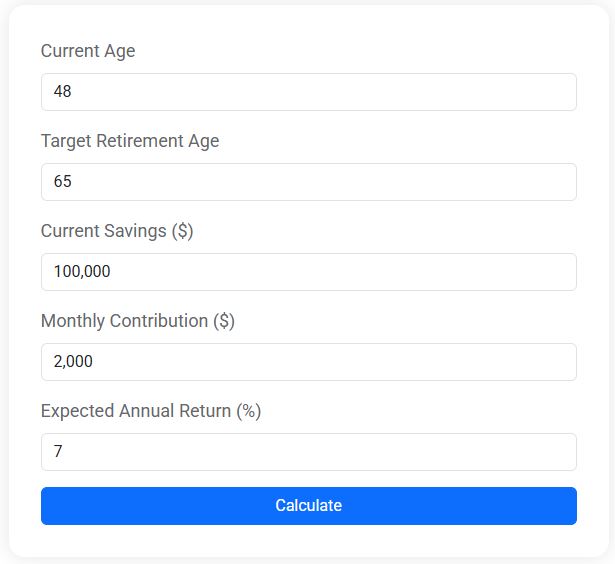Retiring Single: Financial Strategies for Solo Seniors

As the number of solo seniors rises, strategic financial planning for retirement becomes crucial due to the absence of shared income or expenses. Key strategies include understanding one's financial situation, creating a diversified retirement income plan, managing and reducing debt, planning for healthcare costs, and establishing a supportive network. With these steps, solo seniors can ensure a secure and fulfilling retirement.
As the number of solo seniors continues to grow, financial planning for retirement takes on a new level of importance. Without a partner to share income and expenses, these individuals face unique challenges—and opportunities—as they prepare for the golden years. Whether you're newly single, have been navigating life solo for a while, or are simply planning for the future, crafting a strategic plan can help ensure a secure and fulfilling retirement.
The good news is that with thoughtful planning and the right strategies, solo seniors can create a retirement that's not only financially secure but also rich in experiences and connections. From understanding your financial situation to building a supportive network, let's explore the key strategies to consider.
Understanding Your Financial Situation
Before diving into retirement planning, it's essential to get a clear picture of your current financial situation. This means taking stock of your assets, liabilities, income sources, and monthly expenses. Remember, knowledge is power. The more you know about your financial health, the better equipped you'll be to make informed decisions for the future.
Consider creating a detailed budget that outlines your current spending patterns. This can help identify areas where you might cut back, freeing up funds for savings or investments. As financial advisor Jane Smith explains, “Understanding where your money goes each month can reveal surprising opportunities to increase your retirement savings.” Additionally, review your credit report to ensure there are no errors or outstanding debts that need attention.
Creating a Diversified Retirement Income Plan
A diversified income plan is crucial for solo seniors, as it reduces reliance on any single source of income. Start by evaluating traditional income streams such as Social Security benefits and pensions. It's important to know when and how to claim these benefits for maximum advantage. Consider consulting with a financial advisor to explore strategies that could enhance your retirement income.
Beyond the basics, think about other potential income sources like part-time work, rental properties, or investments. Diversification is key. For instance, a balanced mix of stocks, bonds, and real estate can provide both income and growth potential. As CNBC reports, “Retirees with diversified portfolios are better positioned to weather financial downturns.” Remember, the goal is not just to generate income but also to protect it from inflation and market volatility.
Early Retirement Calculator
Thinking about retiring early? Our free Early Retirement Calculator helps you figure out exactly how much you need to save and invest to reach financial freedom sooner. Whether you're aiming for early retirement at 55, 50, or even 40, this tool gives you a personalized projection based on your current savings, monthly contributions, and expected return on investment. Start planning your path to financial independence today.
Managing and Reducing Debt
Debt management is a critical aspect of financial planning for solo seniors. Carrying high-interest debt into retirement can be a significant burden, especially without a partner to share the load. Focus on paying down or refinancing high-interest debts like credit cards or personal loans. This can free up cash flow and reduce financial stress.
Consider strategies such as the debt snowball method—where you pay off smaller debts first to build momentum—or the avalanche method, focusing on the highest interest rates first. Whichever route you choose, consistency is key. As personal finance expert Dave Ramsey often advises, “Eliminating debt can provide a psychological boost, giving you more freedom and flexibility in retirement.”
Planning for Healthcare Costs
Healthcare is often one of the largest expenses in retirement, and solo seniors need a robust plan to cover these costs. Start by understanding your Medicare options and any supplemental insurance you might need. Long-term care insurance is another consideration, as it can help cover costs that Medicare does not.
Estimate your potential healthcare expenses and include them in your retirement budget. According to Fidelity, the average couple retiring today may need over $300,000 for healthcare costs alone. While that figure might seem daunting, proactive planning can help manage these expenses. Consider setting up a Health Savings Account (HSA) if you're eligible, as these accounts offer tax advantages that can stretch your healthcare dollars further.
Establishing a Supportive Network
While financial planning is crucial, so too is building a supportive network. Retirement can sometimes feel isolating, particularly for solo seniors. Cultivating a network of friends, family, and community connections can provide emotional support and practical help when needed.
Think about joining local clubs or groups centered around activities you enjoy. Volunteering can also be a rewarding way to meet new people and give back to the community. Additionally, staying connected with family and friends through regular phone calls or visits can enrich your life and provide a safety net as you navigate retirement solo.
Conclusion: Crafting Your Path Forward
Retiring single presents its own set of challenges, but it also offers the freedom to tailor a retirement uniquely suited to your preferences and lifestyle. By understanding your financial situation, diversifying income, managing debt, planning for healthcare, and building a strong support network, you can create a secure and fulfilling retirement.
Remember, the journey to a successful solo retirement is a marathon, not a sprint. Start planning early, stay informed, and don't hesitate to seek professional advice when needed. With the right strategies in place, you can step confidently into this new chapter, ready to embrace the adventures that await.








